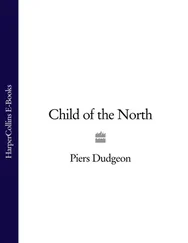1 ...8 9 10 12 13 14 ...24 How did Stephen do it? Despite their solemn oaths, most of the aristocracy were appalled at the idea of Matilda as queen. She was disliked, she was married to the count of Anjou who was unpopular among the Anglo-Norman nobility, and she was a woman. She was thrice damned. Conversely, her cousin Stephen had an easy and appealing manner, was rich and was a respected soldier. He had been a favourite of Henry I and bathed in the residual glory.
And there were the convincing rumours among loyalists to Stephen that Henry I had changed his mind. Those struggling with the moral implications of relinquishing their oaths to Matilda could feel reassured that, if they looked hard enough, the old king had released them from their obligations to a woman.
Stephen had been crowned. Even the pope had given his tacit support. Rather than risk the financial insecurity of civil war, the Anglo-Norman nobility flocked to the new king. ‘All the barons immediately determined, with Theobald’s consent, to serve under one lord on account of the honours which they held in both provinces.’65 For Stephen had bought his elder brother’s loyalty – or at least his silence – with money; he gave him an annual pension of 2,000 marks. In return, Theobald relinquished any claim to the throne of England or the dukedom of Normandy.
Matilda’s claim was abandoned by the nobility, even by her half-brother Robert of Gloucester, putting pragmatism above family loyalty – at least for the time being. In April 1136, he acknowledged Stephen as his king. He was the last to do so and his support for the new king remained at best lukewarm. Robert stayed in Normandy, living quietly on his estates, watching and waiting.
Matilda, as soon as she heard of her father’s death, raced to claim her dowry castles on the Normandy–Anjou borders.66 We have no way of knowing if she mourned, or regretted her argument with her father so close to his death, but she must have lamented the ramifications. For the moment, at least, there was nothing Matilda could do about her English inheritance. She seems to have remained in Normandy, probably in Argentan, holding on to her Norman border. It is probable that Henry and his younger brother Geoffrey remained with her. Her third and last child, William, was born in the summer of 1136.67
Matilda could do nothing but cling on to the tiny part of the Norman inheritance she had managed to secure, while Geoffrey gradually made inroads into the conquest of her duchy, forever watching his back against his own Angevin border lords.
By 1139 – only three years later – everything had changed. Walter Map, with a typical acidity of tongue, pronounced Stephen ‘a man distinguished for skill in arms, but in other respects almost a fool’.68 Stephen had had no success in Normandy. He made the only crossing of his reign in 1137, where he bought off his brother and paid homage for the duchy to Louis the Fat. But he recognised Geoffrey’s superior military force and negotiated a short truce with him, agreeing to an annual payment of 2,000 marks (the truce only lasted for a year). Despite his homage, Stephen had no power in Normandy and would never return again.
In England, within the same three years, he had alienated the bishops and much of his nobility who descended swiftly into factionalism. They had no respect for their king-duke, who had failed in Normandy and was now short of funds, having partially drained his uncle’s enormous treasury.
In the summer of 1139, taking advantage of Stephen’s weakness, Robert of Gloucester used the excuse of rumours that Stephen had tried to have him murdered to put his money and his influence firmly behind his sister’s cause. Matilda had been preparing for war for at least a year, keeping warriors with her such as Alexander of Bohon, a Cotentin nobleman described as ‘the foremost among the countess’s military retinue’.69 Now she and her brother set sail for England together.
Matilda styled herself ‘empress’, and ‘daughter of the king of the English’ to enhance her right to rule. In the coming years, Matilda and Geoffrey would work in tandem, pursuing two separate claims: Matilda’s responsibilities lay with the conquest of England, and Geoffrey’s, with that of Normandy.
The pragmatic Robert’s decision was influenced by the stunning military successes that Geoffrey achieved in Normandy. When Robert declared for Matilda, Geoffrey had made extensive inroads into the duchy. Matilda left Normandy in a much surer position, as she sailed off to England to fight Stephen for her inheritance. She left Henry and his two younger brothers, Geoffrey and William, with their father.
Matilda landed in Sussex on 30 September with her brother Robert and 140 knights, and sought refuge with her stepmother Adeliza, now married to William d’Aubigny, earl of Arundel. Robert, accompanied by only twelve men, left Matilda for his stronghold at Bristol to garner support across the West Country.70
Stephen, in a typical and naive display of chivalry – many of his contemporaries thought it his greatest weakness – did not capture and imprison his first cousin who had come to take the crown from him, but granted her safe passage to join Robert at Bristol. Their cause was joined by their half-brother Reginald of Dunstanville; Matilda’s uncle, now David King of Scots, who fought on Matilda’s behalf in the north; Brian Fitz Count, lord of Wallingford and Abergavenny; and Miles of Gloucester. She received their homage, and it is likely that she set up her court at Gloucester Castle on the banks of the River Severn, while Robert stayed at Bristol.
Matilda’s greatest champion throughout the war would be Brian Fitz Count. He was an illegitimate son of Alan Fergant, count of Brittany. He was at court when Matilda returned from Germany, and over the years he would put all his lands and possessions at Matilda’s disposal.71
He had been one of Henry I’s chief advisors, and owed his king all he had – wealth, lands, and a rich wife. He recalled his time at Matilda’s father’s court as ‘the good and golden days’, grateful that the king had given him ‘arms and an honour’.72
Brian believed in Matilda completely; at least one novelist supposed them to be in love, and the author of the Gesta Stephani noted their ‘affection’ for one another, and his ‘delight’ when she came to England.73 In 1144, Matilda, in public recognition of his unwavering support, issued a grant to Reading Abbey ‘for the love and loyal service of Brian Fitz Count, which he has rendered me’.74 Whether Matilda and Brian Fitz Count were in love, or whether it was the absolute loyalty Brian believed he owed Henry I – and then after his death, his daughter and chosen successor – we will never be sure.
Matilda combined her military campaign with an appeal to the pope to challenge Stephen’s claim to be king. On 4 April 1139, her case was heard before the Second Lateran Council; Matilda’s advocates argued that Stephen had seized the throne illegally, and that he had lied to do so. But although the pope found for Stephen, and ‘confirmed his occupation of the kingdom of England and the duchy of Normandy’, she never ceased to hope that he would change his mind.75
Stephen’s wife, Matilda of Boulogne, joined him in defending England. He still had enough money left in his depleted treasury to employ mercenaries, also known as routiers or ‘ravagers’, and much of the country, besides the borderlands of Wales and the west of England, remained in royal hands.76
Matilda’s friends were tenacious in fighting her cause. Her half-brother Reginald of Dunstanville won in Cornwall, and their grateful brother, Robert, granted him the earldom.77 But one year into the war, the country was feeling its ravages. William of Malmesbury wrote: ‘The whole year [1140] was troubled by the brutalities of war. There were many castles all over England, each defending its own district, or, to be more truthful, plundering it. The war, indeed, was one of sieges. Some of the castellans wavered in their allegiance, hesitating which side to support, and sometimes working entirely for their own profit.’78
Читать дальше












